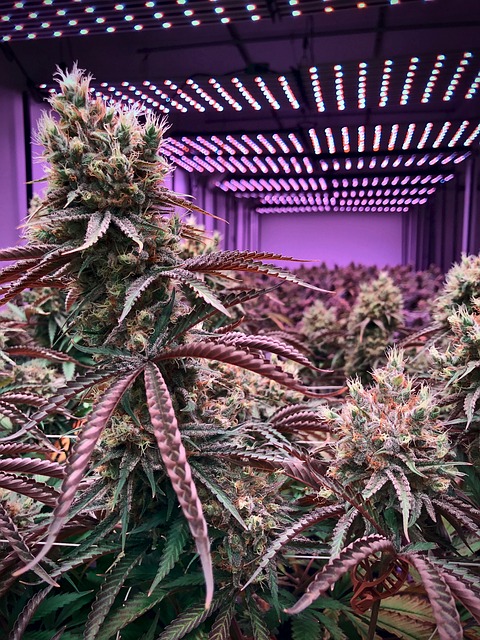THCA flower, a non-psychoactive cannabinoid from the Cannabis sativa plant, is gaining attention for its potential therapeutic properties, including anti-inflammatory and pain-relieving effects. Unlike THC, it does not induce a high, making it suitable for those seeking wellness benefits without mind-altering effects. The synergy between THCA and CBD, another non-psychoactive cannabinoid, is central to the 'Entourage Effect,' which enhances their therapeutic properties. This effect may also mitigate adverse effects, offering a balanced and potentially less psychoactive experience. Users have reported positive experiences with THCA flower in various forms, noting its versatility and potential as a complementary treatment option. It's crucial for users to start with low doses to understand their individual sensitivity and for consumers to consult healthcare professionals before use, especially if they have underlying health issues or are taking other medications. The terpene composition of THCA flower, which includes myrcene, limonene, caryophyllene, and humulene, influences its effects and flavors, contributing to the entourage effect with CBD for enhanced wellness benefits without a psychoactive 'high.' Understanding these terpene profiles can help users select THCA flower strains that align with their health goals.
Exploring the multifaceted effects of THCA flower necessitates a nuanced approach, considering its burgeoning recognition in wellness and therapeutic practices. This article delves into the intricate relationship between THCA flower and the human endocannabinoid system, shedding light on how this cannabinoid-rich substance interacts with CBD for an enhanced ‘entourage effect.’ While THCA is non-psychoactive, it offers a range of potential benefits and side effects that are crucial to understand. We will navigate through the therapeutic landscape, examining its impact on mood, cognition, and anxiety, as well as its influence on respiratory and physical health. Safety considerations, dosage guidelines, and interaction with other substances are also paramount for a comprehensive understanding of THCA flower’s effects. From legal accessibility to personal experiences and best practices for storage, this article aims to provide a robust framework for the informed use of THCA flower. Join us as we explore the scientifically grounded facts and dispel myths surrounding this cannabinoid powerhouse.
- Unveiling THCA Flower: An Overview of Tetrahydrocannabinolic Acid
- The Entourage Effect and CBD Synergy in THCA Flower Consumption
- Potential Side Effects of THCA Flower: A Comprehensive Look
- THCA Flower Dosage and Safety Considerations
- Understanding the Terpene Profiles of THCA Flower and Their Implications
Unveiling THCA Flower: An Overview of Tetrahydrocannabinolic Acid
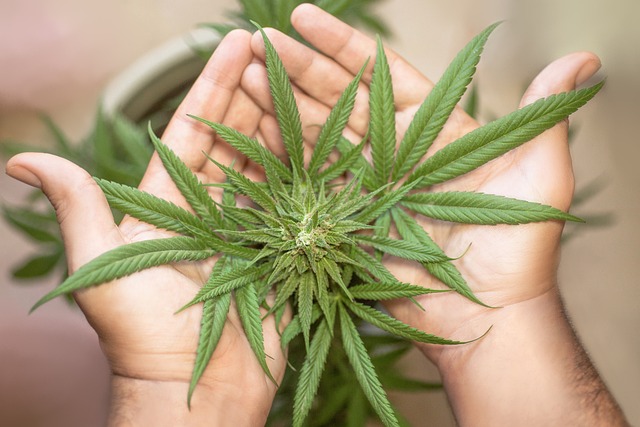
THCA flower, or tetrahydrocannabinolic acid, is a non-psychoactive cannabinoid found in the Cannabis sativa plant that has garnered attention for its potential health benefits and its role in the entourage effect when combined with other cannabinoids like CBD. Unlike its isomer THC (tetrahydrocannabinol), THCA does not induce psychoactive effects, making it a preferred choice for individuals seeking wellness support without the high. The unique properties of THCA flower are under investigation for their therapeutic potential, including anti-inflammatory, neuroprotective, and analgesic effects.
In recent years, researchers have been exploring the synergy between THCA and CBD, another non-psychoactive cannabinoid with a wealth of scientific support for its health benefits. This combination is believed to offer a broader range of therapeutic effects than either compound alone due to the entourage effect, where cannabinoids work together in the body’s endocannabinoid system to enhance each other’s effects. The entourage effect suggests that CBD may modulate some of the effects of THCA, potentially reducing any side effects while amplifying its beneficial properties. This synergy has led to an increase in interest for using THCA flower as a holistic wellness aid, with many users reporting positive experiences with its use in various forms, from smokable flowers to edibles and topicals. As such, understanding the role of THCA in the context of CBD’s entourage effect is crucial for those exploring cannabinoid-based therapies.
The Entourage Effect and CBD Synergy in THCA Flower Consumption
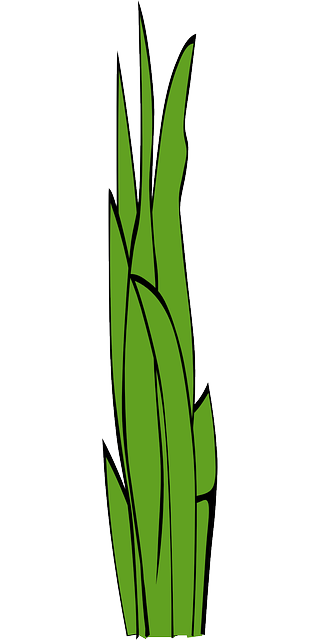
THCA flower, rich in tetrahydrocannabinolic acid (THCA), exhibits a complex interaction with the human endocannabinoid system when consumed. This interaction is further enhanced by the presence of other cannabinoids found in the hemp plant, such as cannabidiol (CBD). The ‘Entourage Effect’ refers to the synergistic interaction between these cannabinoids and other components of the cannabis plant, including terpenes and flavonoids. When THCA flower is consumed, the Entourage Effect comes into play, potentially amplifying the therapeutic effects of both THCA and CBD.
CBD synergy within the THCA flower plays a pivotal role in modulating the effects of THCA. CBD is known for its complementary properties that can counteract or enhance the psychoactive and medicinal effects of THCA. For instance, CBD can help mitigate any anxiety-inducing side effects that might arise from THCA consumption due to its anxiolytic (anxiety-reducing) properties. This synergy can lead to a more balanced effect, providing relief or therapeutic benefits without the overwhelming psychoactivity associated with higher doses of THCA alone. The combined action of these cannabinoids in THCA flower can offer a wide array of potential health benefits, making it a subject of interest for research and consumer use alike.
Potential Side Effects of THCA Flower: A Comprehensive Look

THCA, or tetrahydrocannabinolic acid, is the raw form of THC found in hemp and cannabis plants. While the flower in its THCA form is non-psychoactive, it is often decarboxylated to produce THC when used for its psychoactive effects. However, consumers interested in the potential wellness benefits of cannabinoids may opt for THCA flower, particularly for its reported anti-inflammatory and pain-relieving properties. While the side effects are generally considered mild compared to its psychoactive counterpart, it’s important to be aware of them. Some individuals may experience dizziness, lethargy, or dry mouth upon consuming THCA flower, especially when used in high doses or combined with other cannabinoids like CBD. The synergy between THCA and CBD can enhance the therapeutic effects while potentially reducing the psychoactive impact of THC. Users should start with small doses to gauge their sensitivity and avoid adverse reactions. Additionally, the combination of THCA flower with CBD may offer a broader range of benefits, including anxiety relief and improved mood, without the intoxicating effects associated with high-THC products. It is crucial for consumers to approach THCA flower with caution, particularly if they have pre-existing health conditions or are taking other medications, as interactions can occur and side effects may be amplified. Consulting with a healthcare professional before incorporating THCA flower into one’s wellness routine is advisable.
THCA Flower Dosage and Safety Considerations
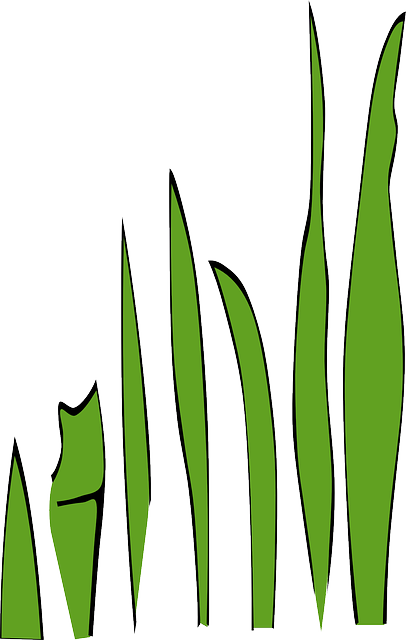
When exploring the therapeutic potential of THCA flower, understanding appropriate dosage and safety considerations is paramount. THCA, or Tetrahydrocannabinolic Acid, is the raw form of THC found in raw cannabis plants and has different effects compared to its decarboxylated form, THC. Users interested in harnessing the benefits of THCA flower often seek out products with high THCA concentrations. It’s crucial to start with a low dose to gauge individual sensitivity, as overconsumption can lead to unwanted side effects. Typically, dosages can range from 1-5 milligrams of THCA per day for those new to cannabinoid use, with some users gradually increasing this amount based on their body’s response and tolerance levels.
Safety is a priority when consuming THCA flower, especially given its potency and the presence of other cannabinoids like CBD. The synergy between THCA and CBD in the THCA flower can temper the psychoactive effects of THC and provide a more balanced experience. This interaction can be beneficial for those seeking relief from various conditions without extreme psychoactivity. It’s important to source high-quality, lab-tested products to ensure purity and avoid contaminants. Users should also be aware that THCA flower can interact with certain medications, so consulting healthcare professionals is advisable before incorporating it into one’s wellness routine. Additionally, those with pre-existing health conditions or pregnant individuals should exercise caution and consider the potential risks associated with cannabinoid consumption. Adhering to dosage guidelines and prioritizing safety measures will help in optimizing the therapeutic benefits of THCA flower while minimizing any adverse effects.
Understanding the Terpene Profiles of THCA Flower and Their Implications
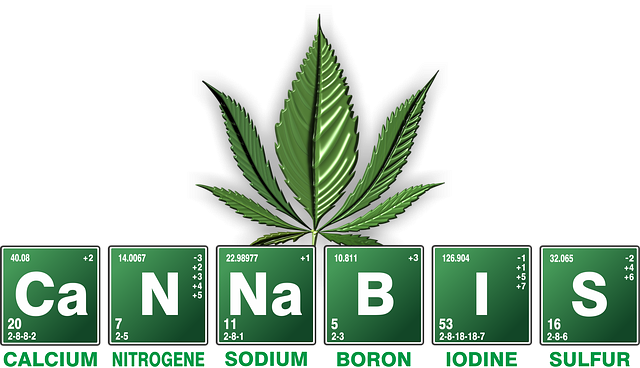
Cannabidiol (CBD) and tetrahydrocannabinolic acid (THCA) both possess distinct terpene profiles that contribute to their therapeutic properties and effects. THCA flower, which contains high levels of THCA as opposed to its psychoactive counterpart THC, exhibits a unique set of terpenes such as myrcene, limonene, caryophyllene, and humulene. These terpenes not only influence the aroma and flavor profiles but also modulate the effects of THCA when consumed. For instance, myrcene is known for its sedative properties, which can enhance the relaxing effects of THCA flower. Limonene adds a citrusy note and has been studied for its mood-elevating qualities, while caryophyllene offers both anti-inflammatory and analgesic benefits. The synergy between these terpenes and CBD in a THCA flower strain can lead to an entourage effect, where the combined effects are greater than the sum of their individual components. This synergy is particularly interesting for those seeking relief from various conditions, as it may offer a more balanced and effective experience without the psychoactive ‘high’ associated with THC. Understanding these terpene profiles is crucial for consumers looking to harness the full potential of THCA flower and its CBD synergy for wellness and health applications. It allows users to select strains that align with their desired therapeutic outcomes, whether that be relaxation, pain relief, or mood support.
In conclusion, the exploration into the properties and effects of THCA flower has shed light on its potential within the realm of wellness, particularly when combined with CBD for enhanced therapeutic benefits. While the entourage effect and CBD synergy in THCA flower offer a promising avenue for natural relief, it is imperative to approach its use with caution due to its side effects, which can include mild psychoactive effects, drowsiness, and potential interactions with other medications. Careful dosage and attention to individual sensitivities are crucial to ensure safe consumption. The unique terpene profiles of THCA flower also play a significant role in its effects, contributing to the diverse experiences reported by users. As research continues to evolve, it is clear that THCA flower holds a valuable place in the cannabinoid conversation, offering a nuanced and potentially beneficial addition to one’s wellness regimen.
